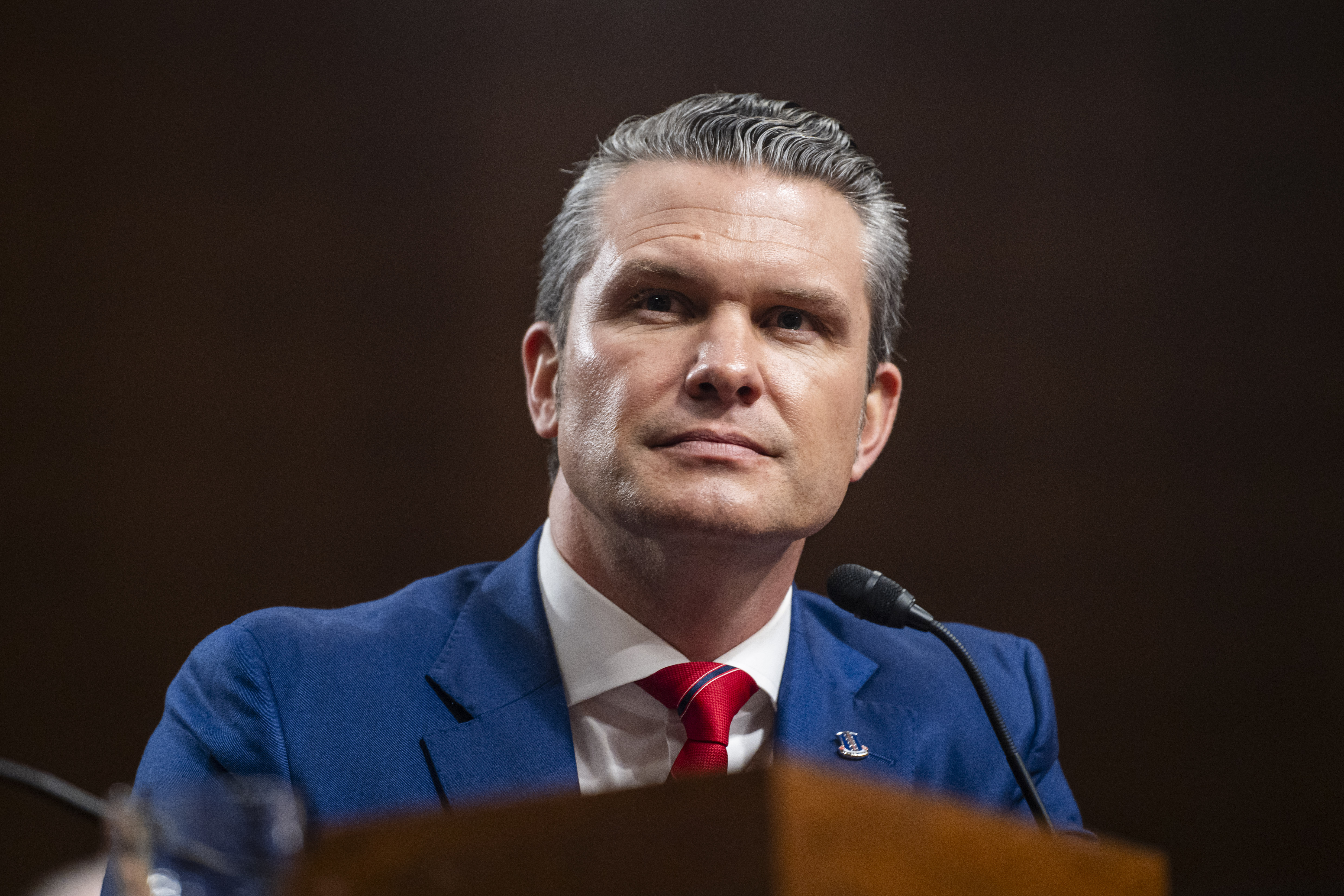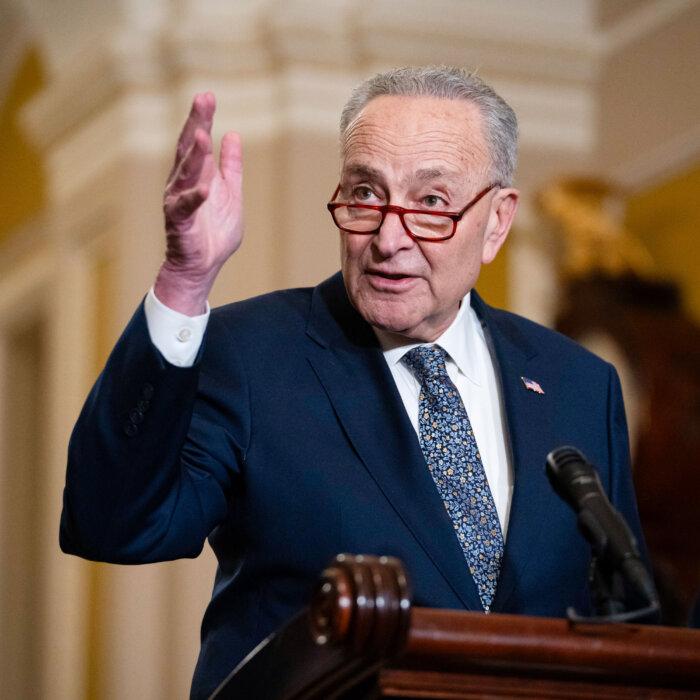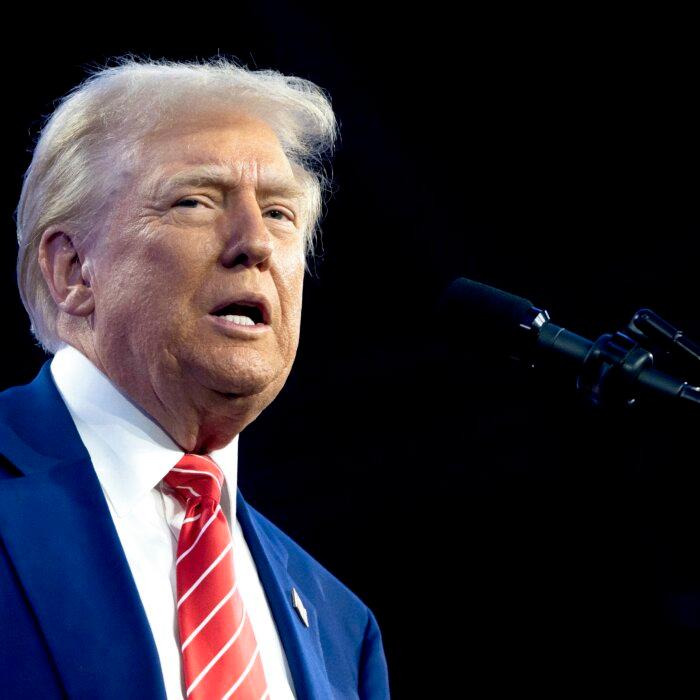Several Democrats voiced concerns about Pete Hegseth’s qualifications for the role of defense secretary, from his lack of experience running a large-scale organization to allegations of misconduct.
Sen. Gary Peters (D-Mich.) said he didn’t “know of any corporate board of directors that would hire a CEO” who hadn’t managed more than 100 employees.
Other Democrat senators suggested that being drunk on the job—an allegation Hegseth has denied—and marital infidelity should be disqualifying acts for a defense secretary.
Pete Hegseth committed, if confirmed as defense secretary, that the Pentagon would give back pay to servicemembers who “were forced out due to an experimental vaccine,” noting that Trump has committed to these actions.
Additionally, he said, members would be reinstated with their rank and receive an apology.
Sen. Kevin Cramer (R-N.D.) asked Pete Hegseth to elaborate on the tattoo that led to the revocation of his military orders to guard President Joe Biden’s inauguration in January 2021.
“It’s called the Jerusalem cross; it’s a historic Christian symbol,” Hegseth said, noting that the same cross was printed on the program of the late President Jimmy Carter’s memorial service last week.
Hegseth explained that he had received orders to guard Biden’s inauguration, but those orders—along with others—were inexplicably revoked “at the last minute.” It wasn’t until he began writing his book, “The War on Warriors,” that he learned he had been identified as an extremist.
Pete Hegseth said that he will reinstate military members who had been released from service because they did not follow the Pentagon’s COVID-19 vaccine mandate.
"In President Trump's defense department, they will be apologized to; they will be reinstituted with pay and rank," he said.
The mandate ended in 2023. However, Defense Secretary Lloyd Austin has said that members who declined to get vaccinated will not be reinstated.

Sen. Mazie Hirono (D-Hawaii) asked her usual two questions to nominees who come before committees that she serves on: whether they committed acts of sexual misconduct and if they have entered into a settlement over such incidents.
Hegseth answered in the negative to the former. Answering the latter, Hegseth said there was an allegation in 2017, but he was cleared of it.
Sen. Joni Ernst (R-Iowa), noting the Pentagon’s recent failure to pass audits, asked Pete Hegseth what he would do to ensure the Defense Department has a “clean” audit by 2028.
Hegseth responded by promising to prioritize such audits and affirming his stance that doing so is “an issue of national security.”
American taxpayers, he said, “expect that we know where that money goes, and if that money is going somewhere that doesn’t add to tooth and instead goes to fat or tail, we need to know that; or if it’s wasted, we need to know that.”
Sen. Richard Blumenthal (D-Conn.) asked Pete Hegseth about alleged fiscal mismanagement when he led veterans groups.
At Veterans for Freedom, in 2008, Hegseth raised $8.7 million but spent $9 million, resulting in a deficit, according to Blumenthal, citing tax records.
Hegseth said he is “proud” of his work at Veterans for Freedom, whose chief operating officer, in Hegseth’s words, “will attest that every dollar we raised was used intentionally toward the execution of our mission, which is supporting the warfighters.”
Sen. Kirsten Gillibrand (D-N.Y.) questioned defense secretary nominee Pete Hegseth’s ability to steer the Department of Defense (DOD) without political bias.
“The statements you said about people who have views differently than you, that we’re the enemy. Are you saying that 50 percent of the DOD—if they hold liberal views or leftist views or are Democrats—are not welcome in the military?” Gillibrand asked.
Hegseth responded by pointing to his record.

Sens. Jeanne Shaheen (D-N.H.) and Tom Cotton (R-Ark.) each took turns questioning Pete Hegseth about his view on women serving in combat roles.
Shaheen noted a comment Hegseth made in a Nov. 7 podcast interview, in which he stated: “I'm straight up saying that we should not have women in combat roles. It hasn't made us more effective.”
She noted more recent comments Hegseth has made indicating support for women in the military, including in combat roles.
Senate Armed Services Committee Chairman Jack Reed (D-R.I.) called for two rounds of questioning, citing that past defense secretary nominees received multiple rounds of questioning when they appeared before the committee as nominees.
However, the committee’s chairman, Sen. Roger Wicker (R-Miss.), said one round is adequate, which was agreed to in December.

Pete Hegseth addressed allegations against him, labeling them "a coordinated smear campaign orchestrated in the media" during his Senate confirmation hearing on Jan. 14.
These allegations include sexual misconduct, alcohol abuse, and financial mismanagement, which he has denied.
“A small handful of anonymous sources were allowed to drive a smear campaign, an agenda about me, because our left-wing media in America today, sadly, doesn't care about the truth,” he said.
“I’m not a perfect person, but redemption is real, and God forged me in ways that I know I’m prepared for. And I’m honored by the people standing and sitting behind me and look forward to leading the Pentagon on behalf of the warfighters.”

Hegseth pledged, in his opening statement at his Senate confirmation hearing on Jan. 14, that the Department of Defense will avoid politics under his leadership.
“We will remain patriotically apolitical and stridently constitutional,” he said.
“Unlike the current administration, politics should play no part in military matters. We are not Republicans or Democrats—we are American warriors. Our standards will be high, and they will be equal, not equitable. That is a very different word.”
Rep. Mike Waltz (R-Fla.), President-elect Donald Trump’s incoming national security adviser, praised Pete Hegseth’s experience on the frontlines as a unique asset to the role of secretary of defense.
“He will bring the perspective of being the first secretary of defense to have served as a junior officer on the frontlines—not in the headquarters, on the front lines—in the war on terror, and recognizes the human costs, the financial costs, and the policy drift that was discussed often in this very room that led us to decades and decades of war,” Waltz testified before the Senate Armed Services Committee.
Waltz, a retired Green Beret, described Hegseth as “a dear friend for over a decade” who has the communication skills necessary to convey the Pentagon’s goals to the American people.

Retired U.S. Army Staff Sgt. David Bellavia, a recipient of the Medal of Honor, shared a statement of support for Pete Hegseth’s defense secretary nomination, which Senate Armed Services Committee Chairman Roger Wicker (R-Miss.) read off in his opening remarks at the Jan. 14 confirmation hearing.
Hegseth “is fearless, unflappable, and confronts conflicts head on,” Bellavia wrote. “ He's a leader to the core.
“When Pete is confirmed as the next secretary of defense of the United States of America, this country will finally know the privilege of having a true ambassador able to speak on behalf of this generation and its two-decade global war on terror.”

Pete Hegseth stressed, in a prepared statement before his Senate confirmation hearing that his focus, if confirmed as defense secretary, will be on improving the U.S. military’s emphasis on warfighting.
“As I've said to many of you in our private meetings, when President Trump chose me for this position, the primary charge he gave me was — to bring the warrior culture back to the Department of Defense,” Hegseth wrote.
“He, like me, wants a Pentagon laser-focused on warfighting, lethality, meritocracy, standards, and readiness. That's it. That is my job.”
Ahead of Pete Hegseth’s confirmation hearing, President-elect Donald Trump expressed support for the Fox News contributor.
“Pete Hegseth will make a GREAT Secretary of Defense. He has my Complete and Total support. Good luck today, Pete!” he wrote on Truth Social.
Hegseth is the first of Trump’s nominees to go before the Senate.
The Senate Armed Services Committee will kick off the confirmation process for President-elect Donald Trump’s Cabinet nominees on Tuesday, starting with veteran and former Fox News host Pete Hegseth.
Hegseth will aim to assure the committee that he is qualified to lead the Department of Defense.
The hearing will begin at 9:30 a.m. ET and will be streamed online.

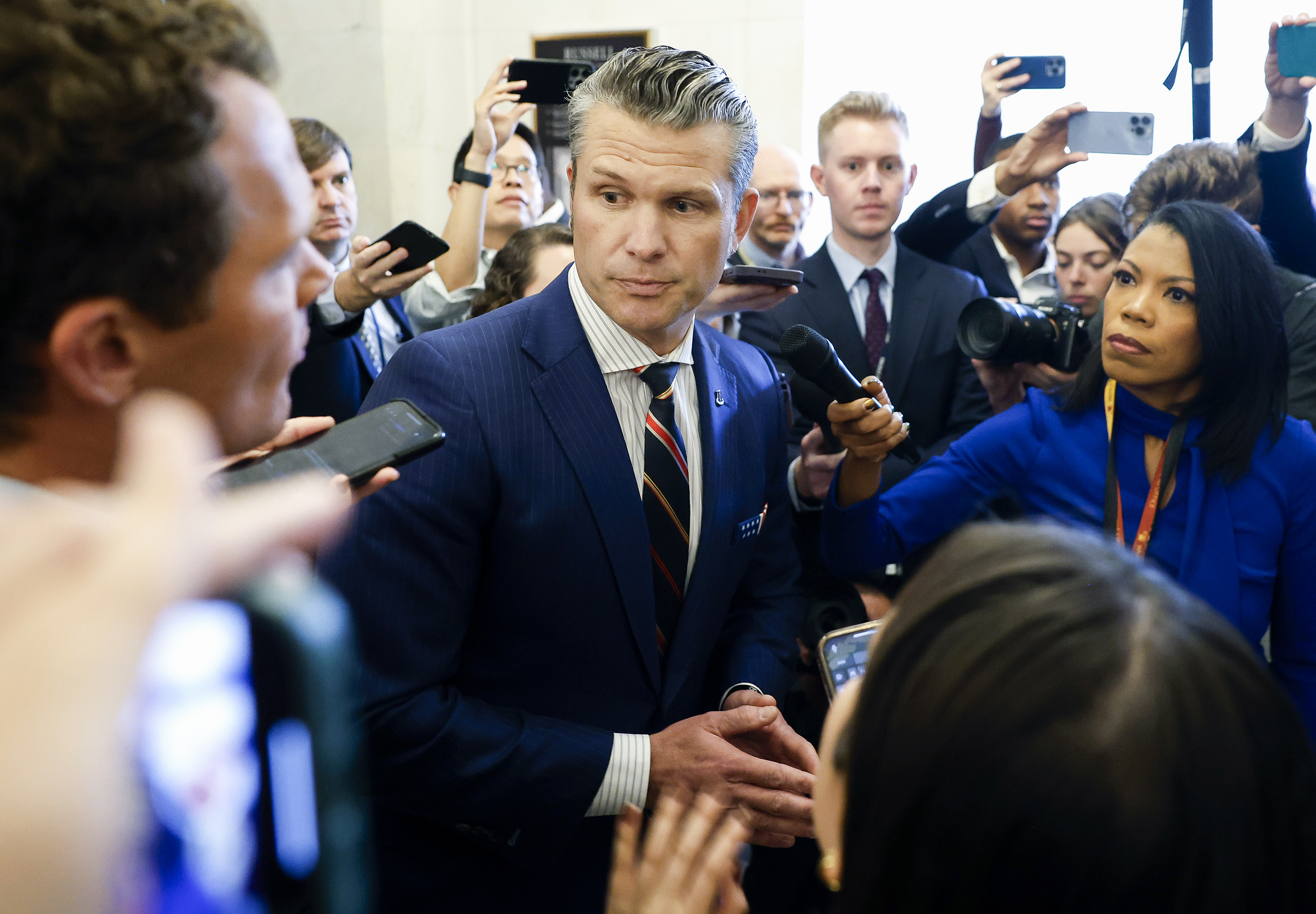
The U.S. Senate is set to begin hearings on Jan. 14 to consider the first of President-elect Donald Trump’s Cabinet nominees.
Much of the attention during the hearings is likely to focus on Pete Hegseth, a former Minnesota Army National Guard officer, whom Trump has nominated for the role of secretary of defense.
The Senate Armed Services Committee, leading off Hegseth’s confirmation process, could question him about his plans to reorient the military’s warfighting focus and his views on women serving in combat roles.
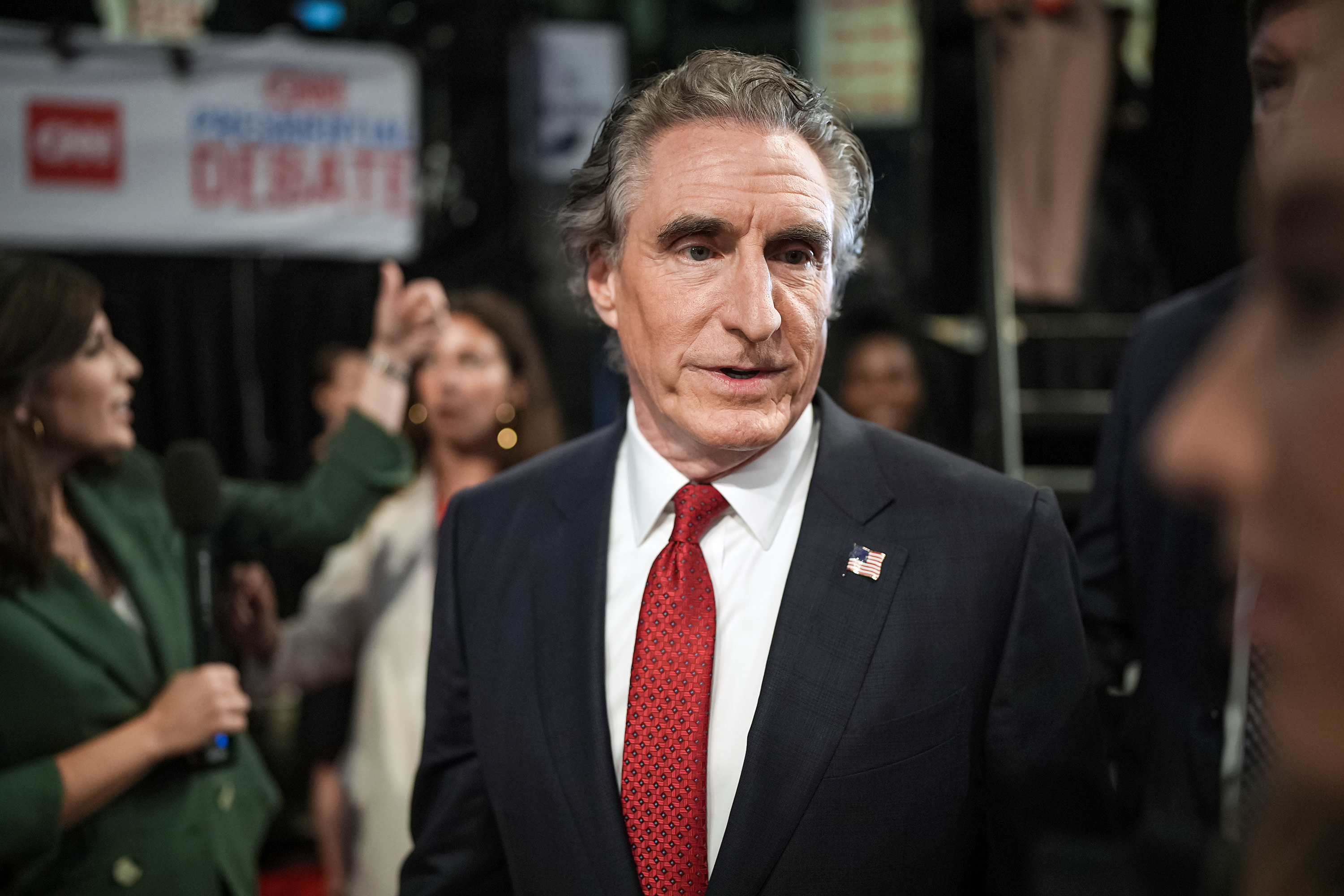
The confirmation hearings for Veterans Affairs Secretary nominee Doug Collins and Interior Secretary nominee Doug Burgum, initially scheduled for Jan. 14, have been postponed amid delays in the vetting process.
Sen. Jerry Moran (R-Kan.), chairman of the Senate Committee on Veterans’ Affairs, said he has postponed the confirmation hearing for Collins to Jan. 21—the day after President-elect Donald Trump’s inauguration.
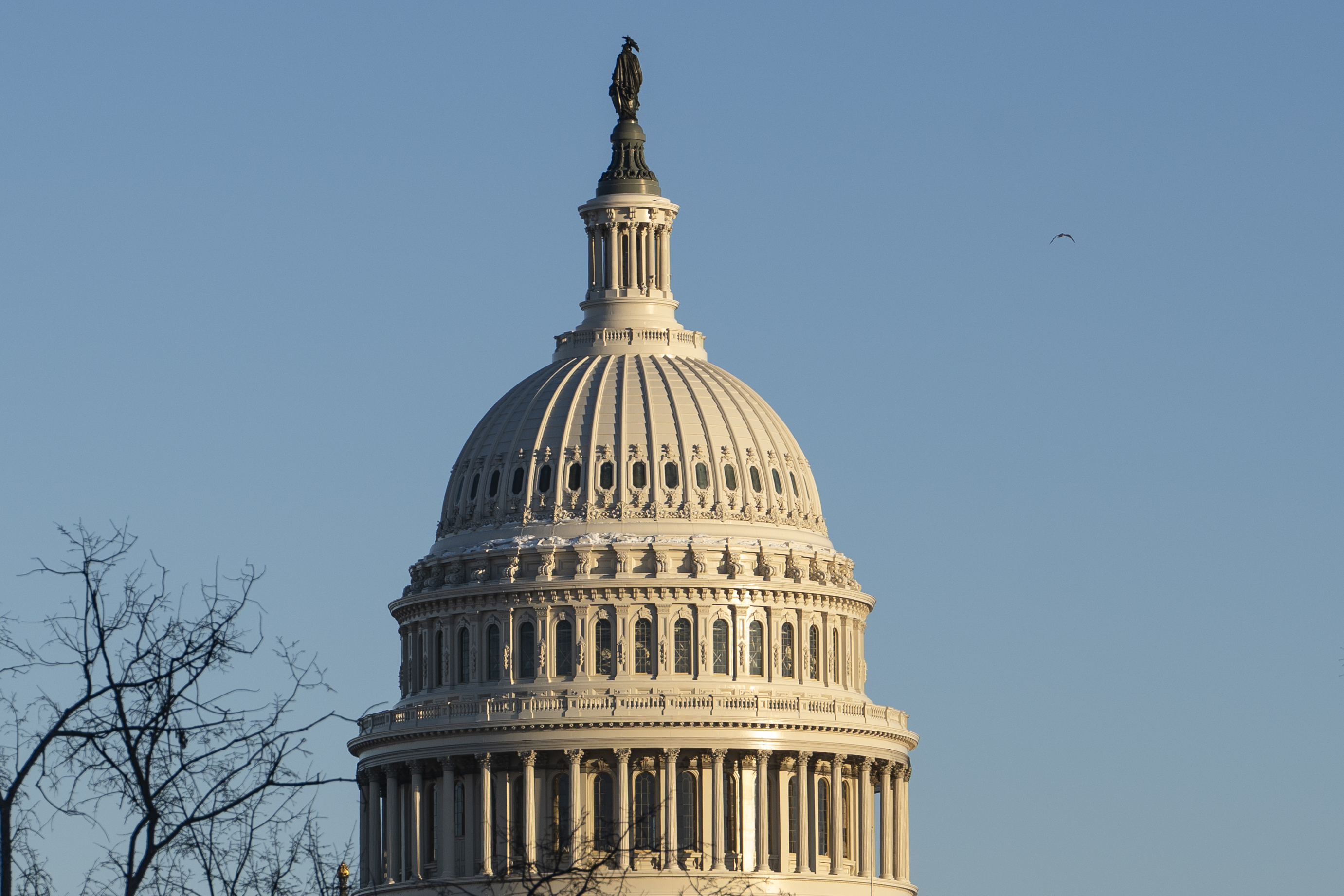
This week will be busy on Capitol Hill as 13 of President-elect Donald Trump’s nominees will be questioned by Senate committees.
Constitutional Requirement
Almost all Cabinet nominees require Senate confirmation in accordance with the Constitution, which states that the president “shall nominate, and by and with the Advice and Consent of the Senate, shall appoint Ambassadors, other public Ministers and Consuls, Judges of the Supreme Court, and all other Officers of the United States, whose Appointments are not herein otherwise provided for.”Going Before Committees
The nominees testify before the applicable committees. For example, Sen. Marco Rubio (R-Fla.), Trump’s pick for secretary of state, is scheduled to go before the Senate Foreign Relations Committee on Jan. 15, while Doug Burgum, the president-elect’s nominee to lead the Interior Department, is set to testify before the Senate Committee on Energy and Natural Resources, the day before.Committee Votes on Whether to Advance Nominees
Afterward, the committees will vote on whether to advance the nominee for a full vote on the Senate floor. A nominee being rejected by a committee does not mean that he or she cannot get a vote before the full Senate; therefore, the committee vote is non-binding.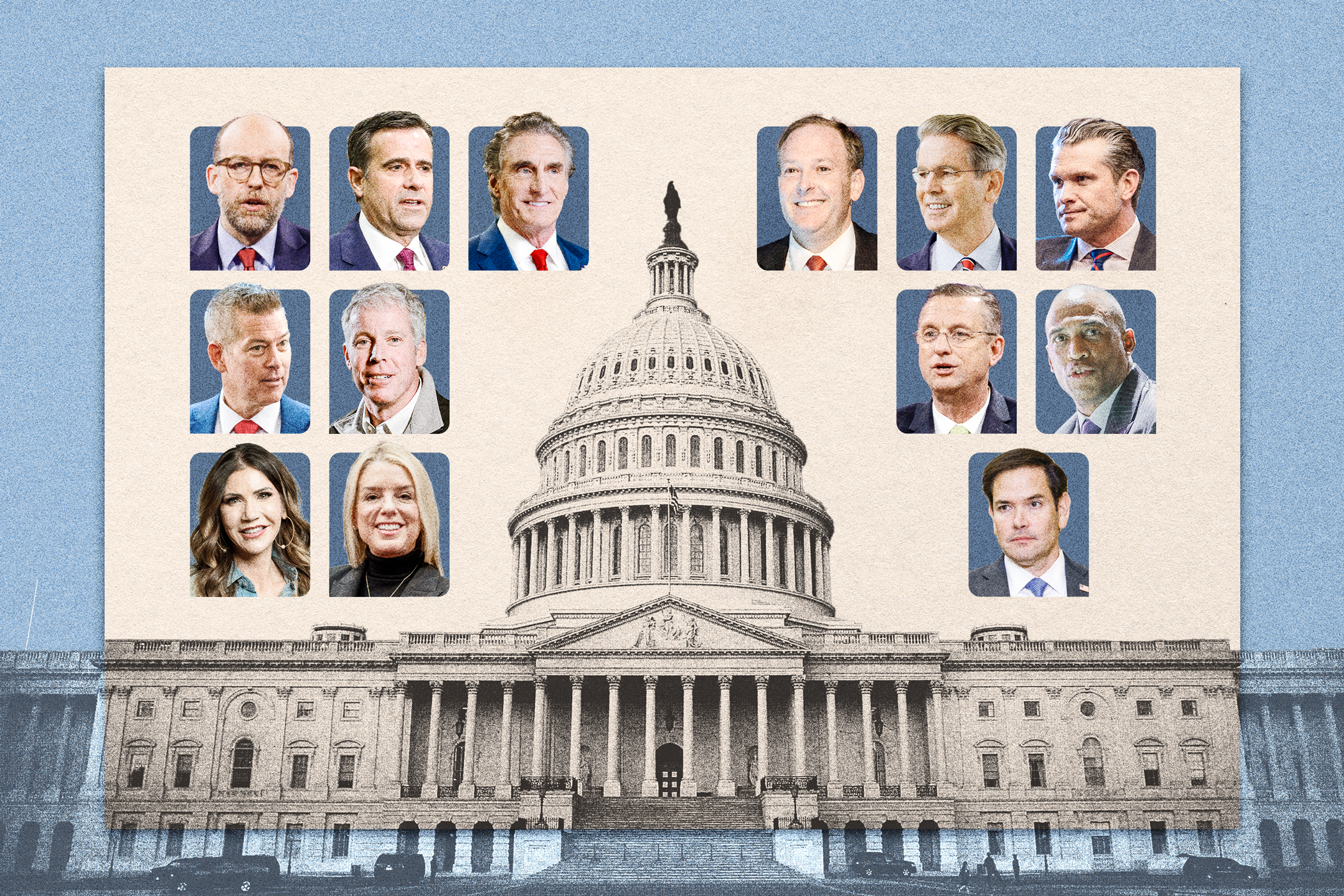
A dozen of President-elect Donald Trump’s Cabinet nominees will face confirmation hearings in the Senate this week.
The back-to-back Senate hearings are likely to prove the first major test of Trump’s second term in office, as some of the president-elect’s selections have stoked controversy on both sides of the aisle in recent months.
